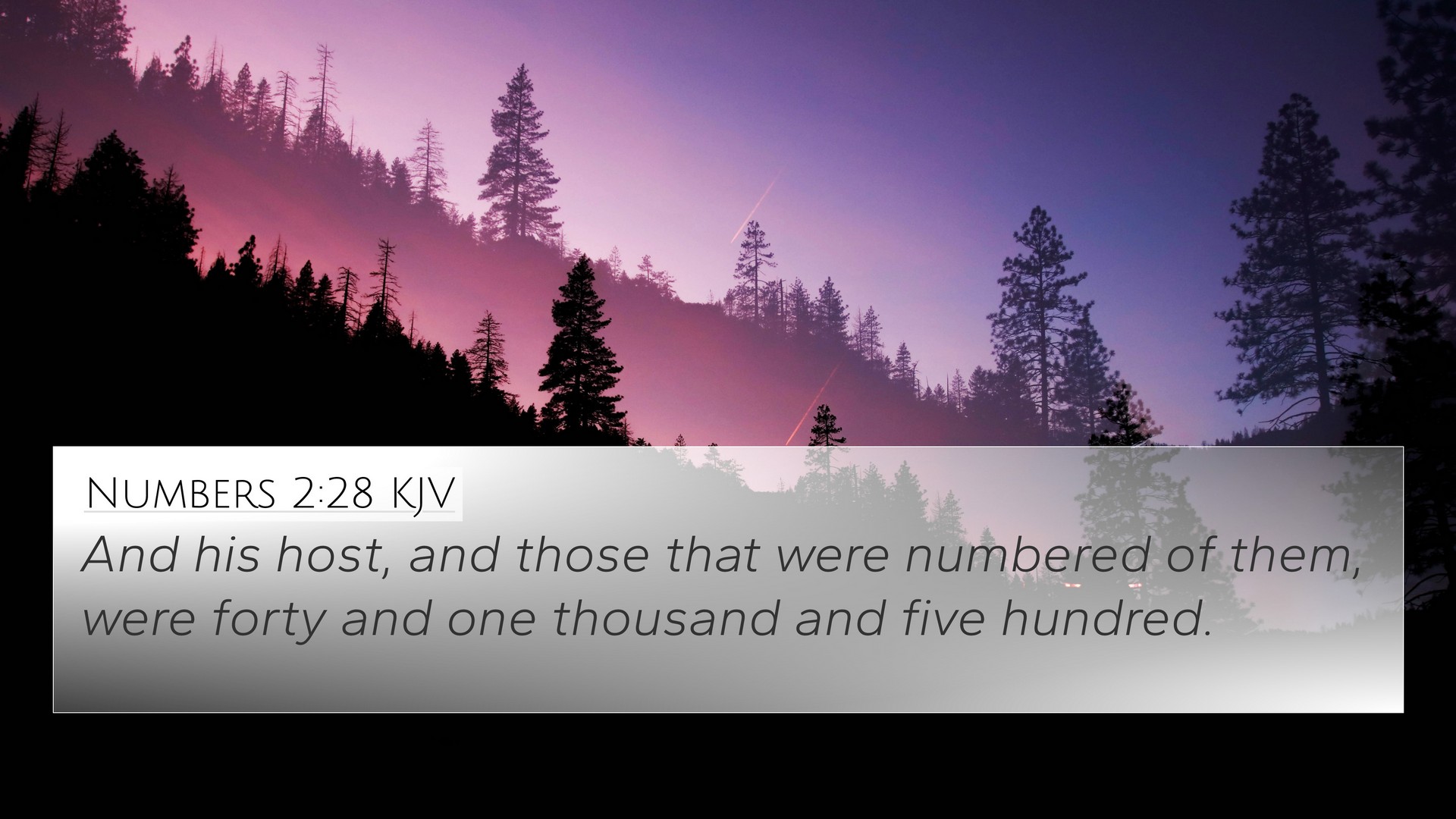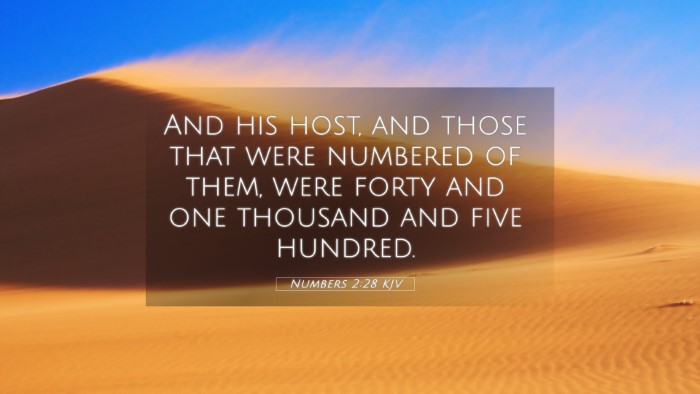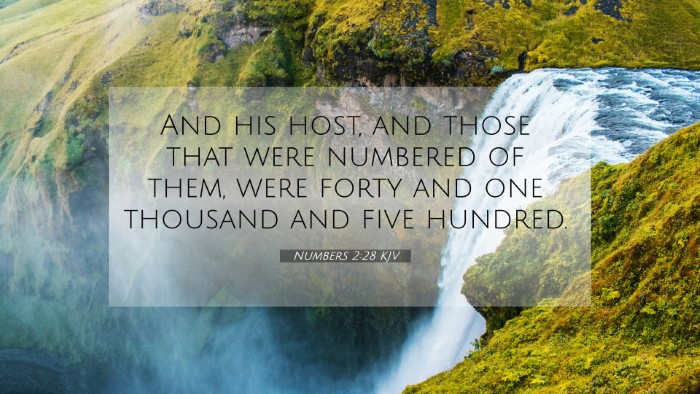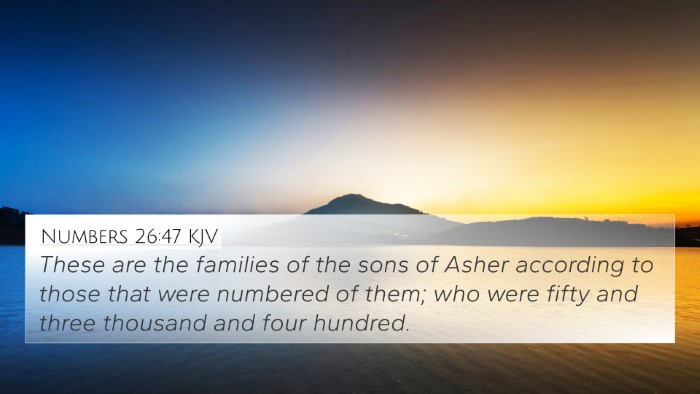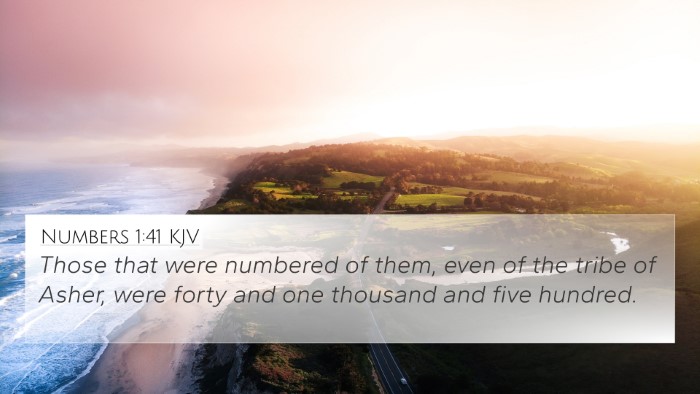Understanding Numbers 2:28
Numbers 2:28 states, "And those who camped next to him are the tribe of Zebulun; the leader of the Zebulunites is Eliab son of Helon.". This verse forms part of the detailed organization of the Israelite camp as they journey through the wilderness.
The importance of this verse lies in its representation of order, unity, and the distinct roles of each tribe within the community of Israel during their nomadic existence. Eliab, the leader, signifies the human element of leadership amid divine guidance.
Key Themes in Numbers 2:28:
- Leadership and Organization: The verse reflects on the significance of having appointed leaders, as Eliab leads the tribe of Zebulun.
- Identity of the Tribes: Each tribe possesses its unique identity and purpose, serving as a reminder of God’s promise to Abraham, Isaac, and Jacob.
- Covenant Community: The Israelites are depicted as a covenant community, where each tribe fulfills a specific function in their journey toward the Promised Land.
- Divine Order: The ordering of the tribes signifies a divine pattern that God established for His people, which remains evident throughout biblical history.
Commentary Insights:
According to Matthew Henry, the details of the camp's arrangement emphasize God’s ultimate authority and governance over His people. Each tribe, represented here by Zebulun, showcases the diversity yet unity within the Israelite community.
Albert Barnes adds that Eliab's role as the leader highlights the critical function of leadership in maintaining order and fulfilling duties assigned by God, ensuring the continuation of God's plan as they travel.
Adam Clarke further emphasizes the historical context, noting that these tribal divisions and leadership roles play a vital part in understanding the broader narrative of Israel's formation and their relationship with God.
Cross-References:
This verse can be linked and compared with several other Bible verses, enriching its understanding through various thematic connections:
- Exodus 18:21 - Discusses the appointment of leaders over thousands, hundreds, fifties, and tens, reflecting on the structure established for governance.
- Joshua 19:10 - Highlights the inheritance of the tribe of Zebulun, showcasing their historical significance.
- Genesis 49:13 - Offers Jacob's blessing to Zebulun, indicating their future role and identity among the tribes of Israel.
- 1 Chronicles 12:33 - Refers to the sons of Zebulun being trained for war, illustrating characteristics of the tribe.
- Isaiah 9:1 - Prophetic reference to the land of Zebulun, foreseeing greater spiritual significance in the New Testament.
- Revelation 7:8 - Mentions the tribe of Zebulun in the context of the sealed servants of God, affirming the tribe's lasting legacy.
- Numbers 1:10 - Introduces the leaders of the tribes, aligning with the themes of leadership presented in Numbers 2:28.
Significance of Cross-Referencing:
Cross-referencing Biblical texts such as Numbers 2:28 enriches the understanding of scripture by revealing connections and themes that span across the Bible. Tools for Bible cross-referencing, such as a Bible concordance or cross-reference Bible study methods, enable deeper insight into the relationships among verses.
Engaging in a comparative Bible verse analysis helps uncover the rich tapestry woven throughout the narrative of the Israelites, exemplifying how the Old Testament's covenant community leads to New Testament revelations.
Conclusion
Numbers 2:28 illustrates the structured and divinely ordained order among the tribes of Israel. By exploring related verses and themes, one can appreciate how this passage holds significance not just in historical context, but also in its theological implications for understanding leadership, community, and God's covenant with His people.
